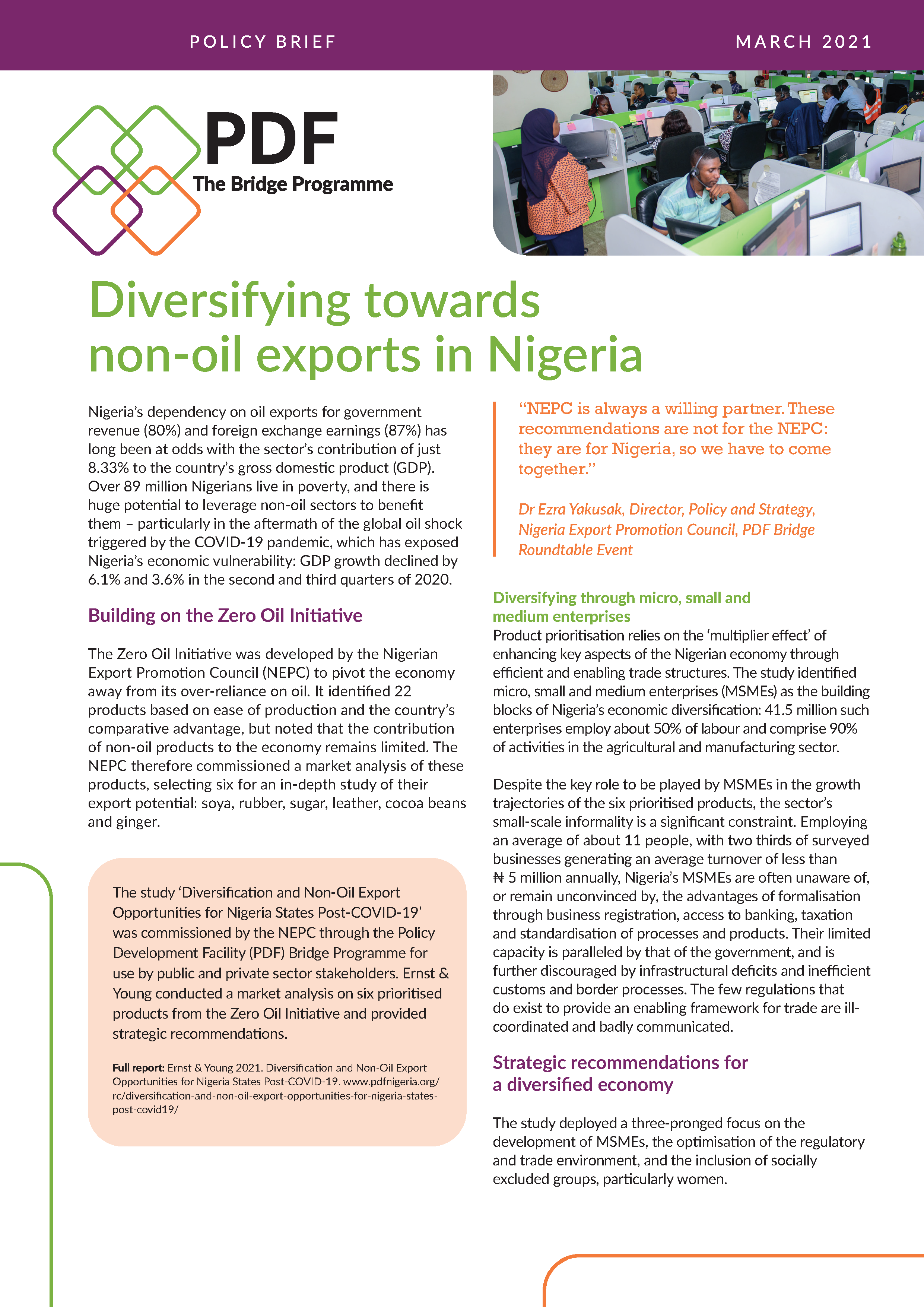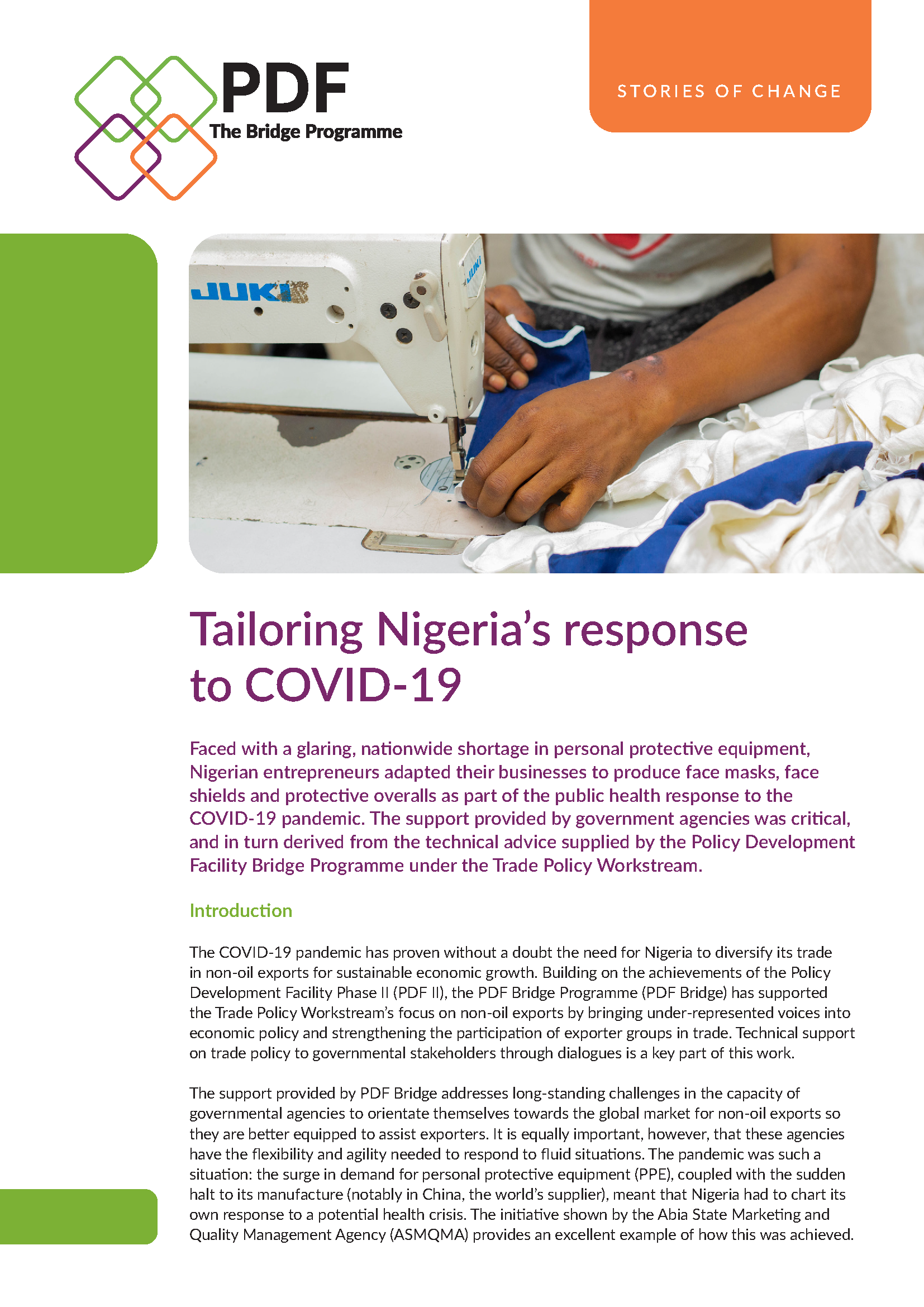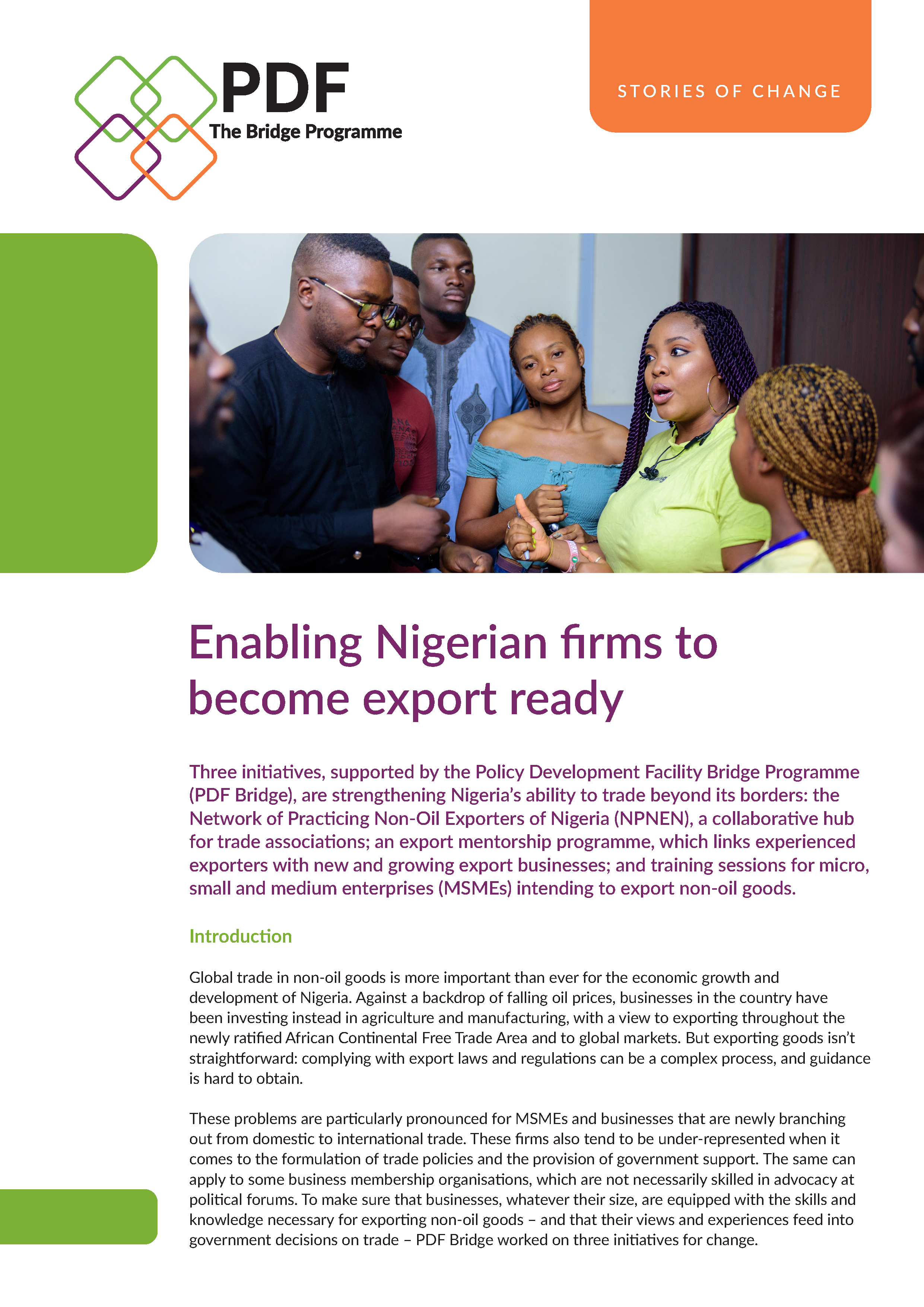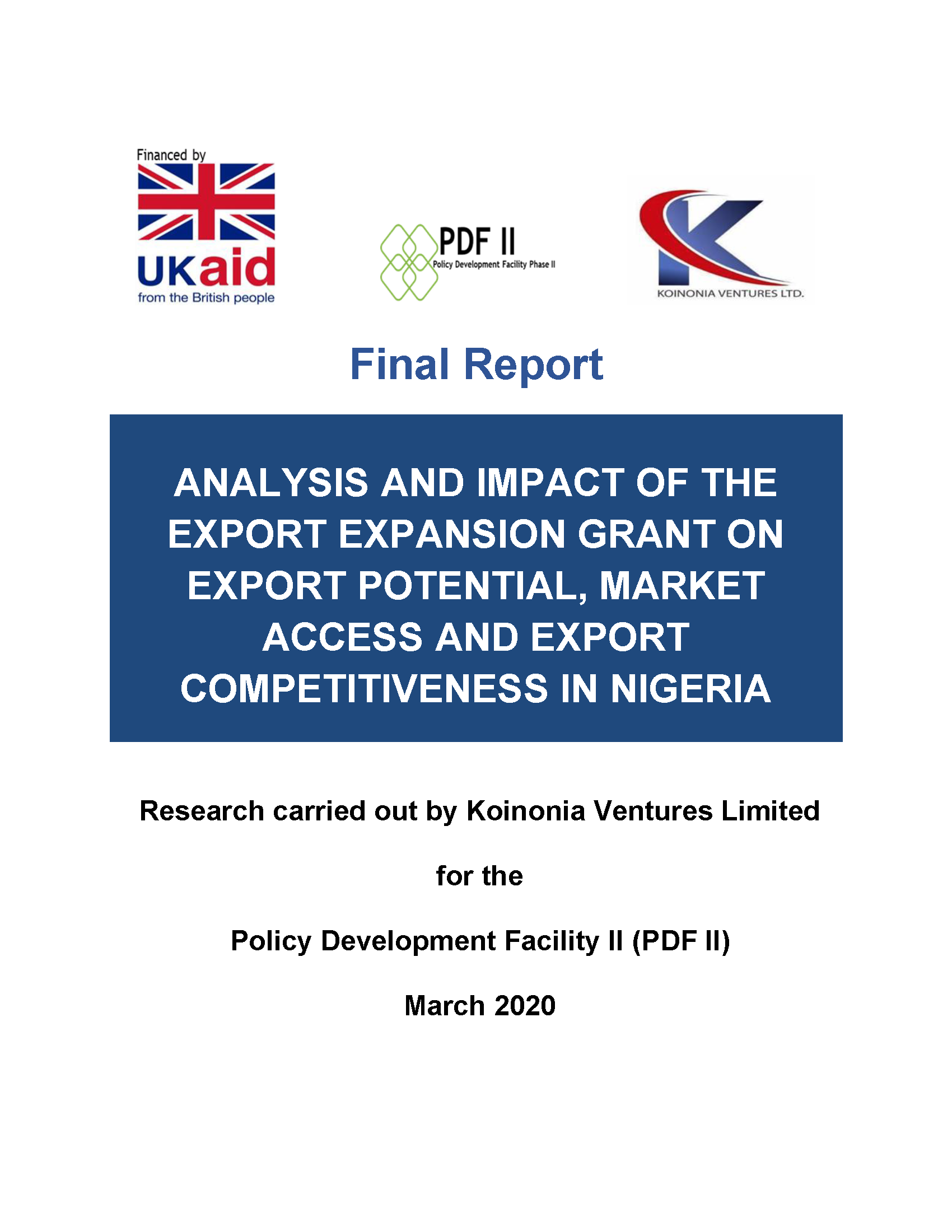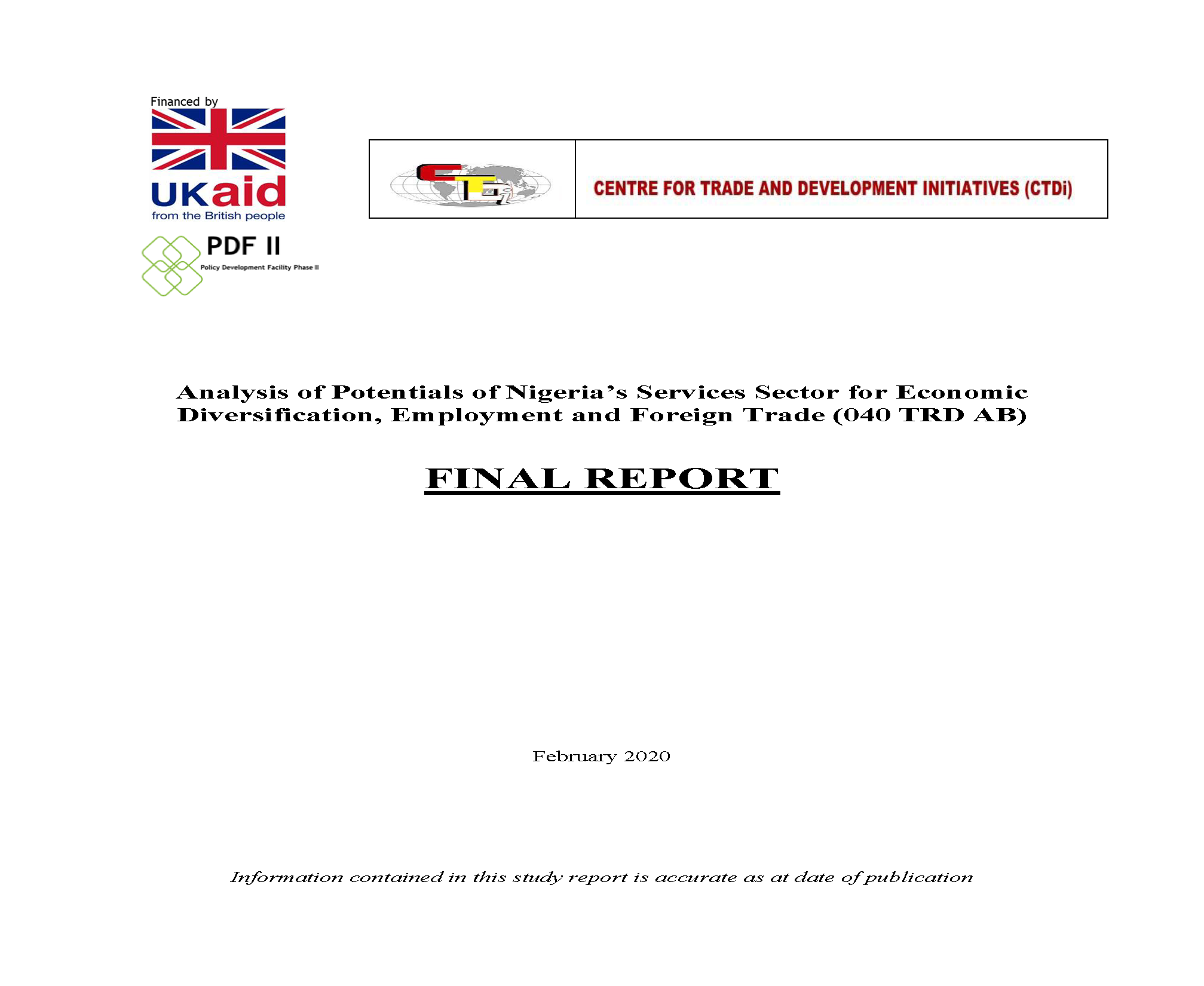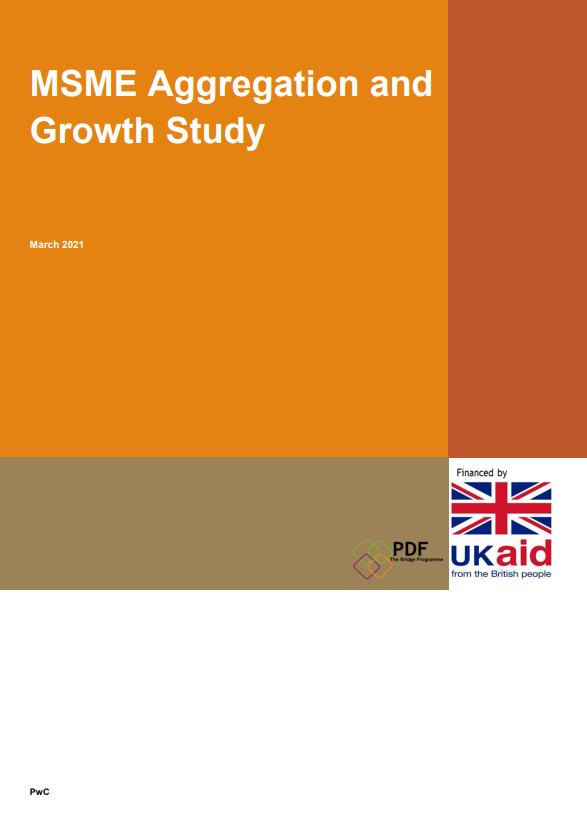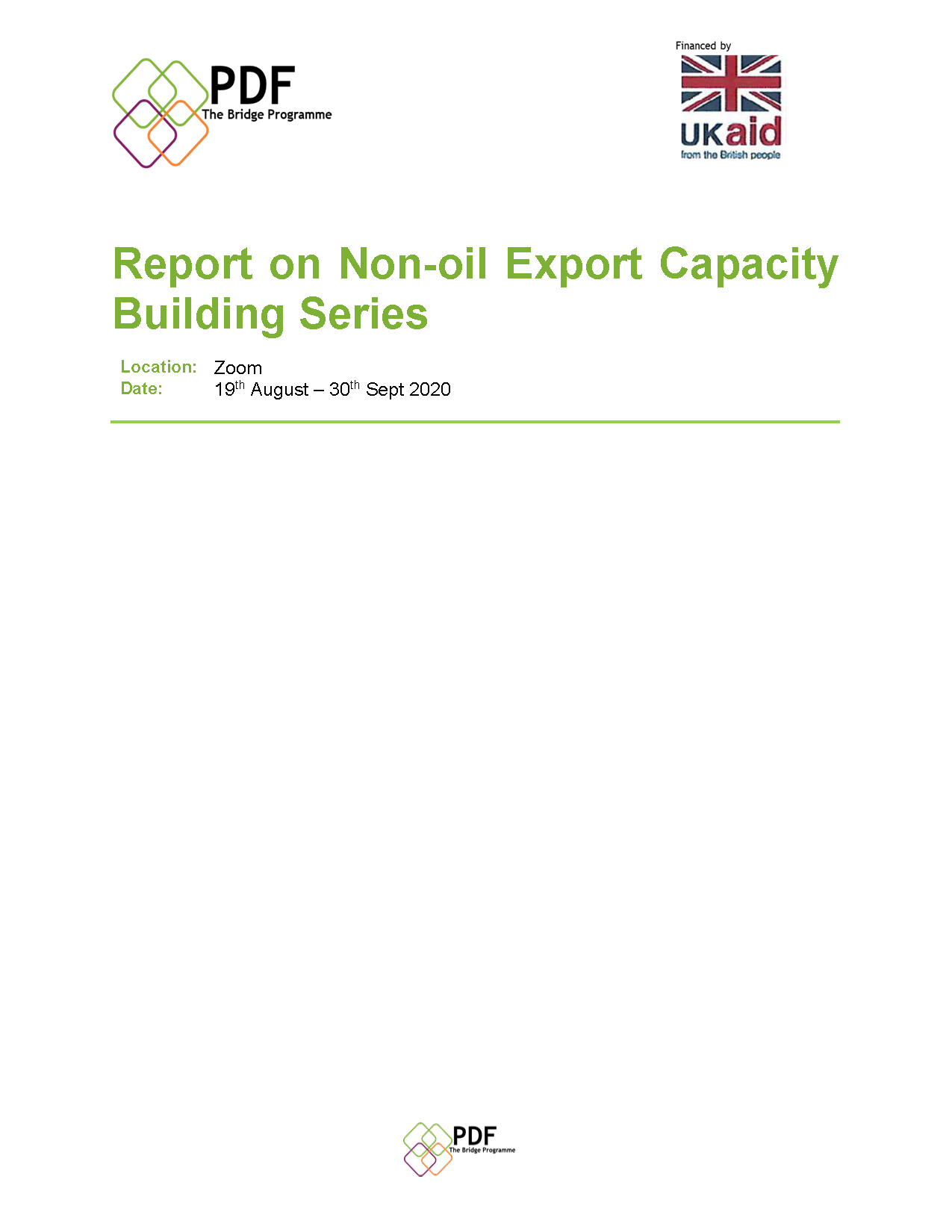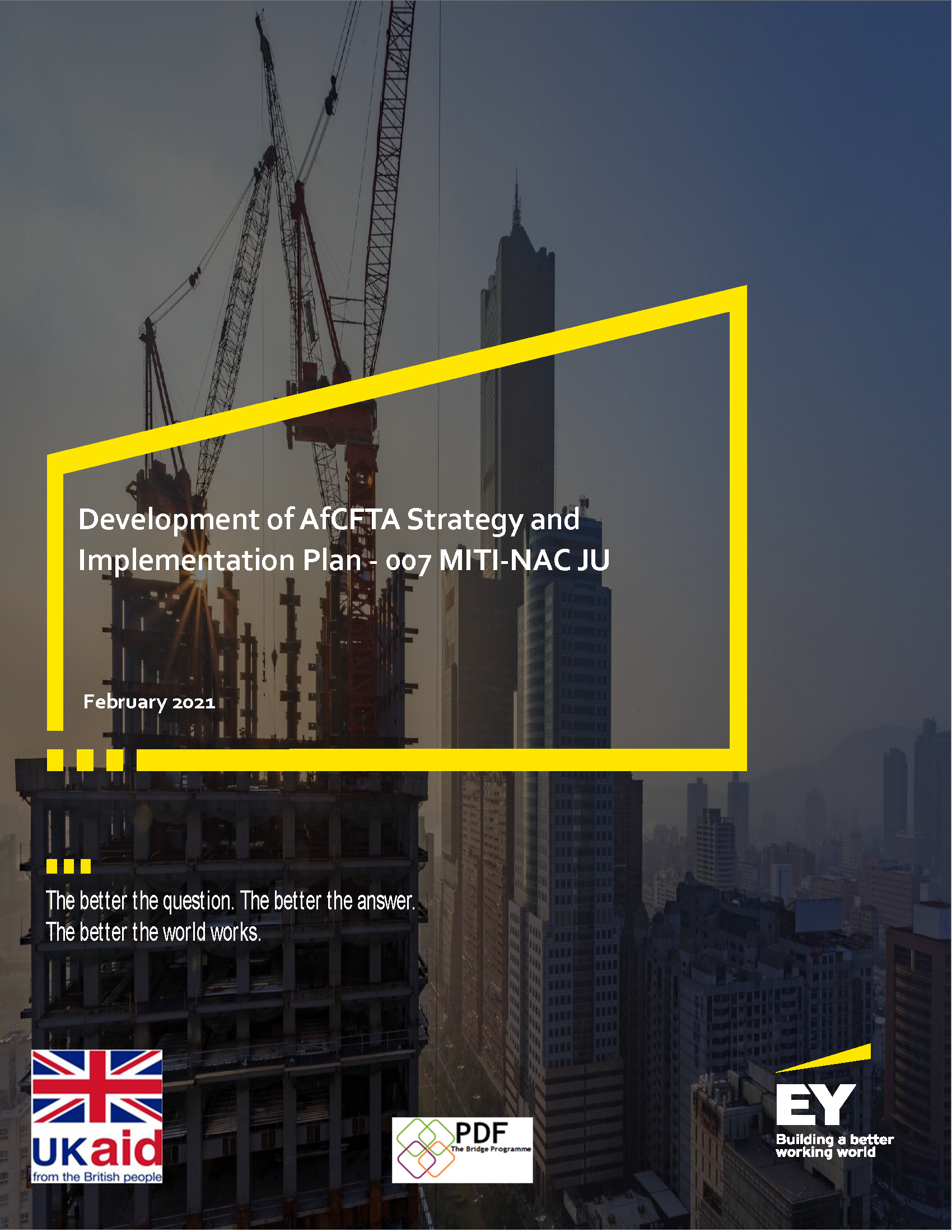PDF Bridge Closeout Dinner (Photospeak)
Photos from the Dinner hosted by the Policy Development Facility Bridge Programme to mark the end of the programme. The dinner was well attended by Champions of Change from various MDAs, the National Assembly, and the Presidency. Attendance was done within the limits of set COVID-19 regulations.


